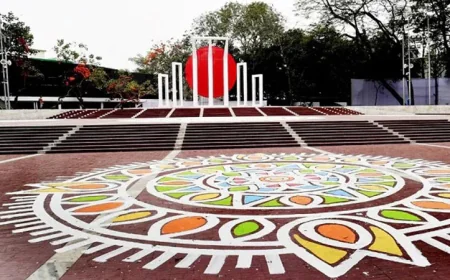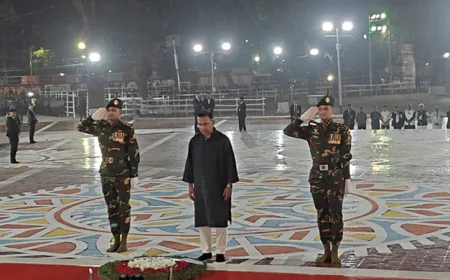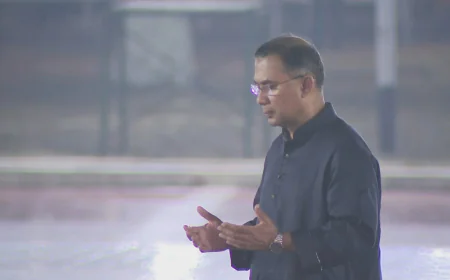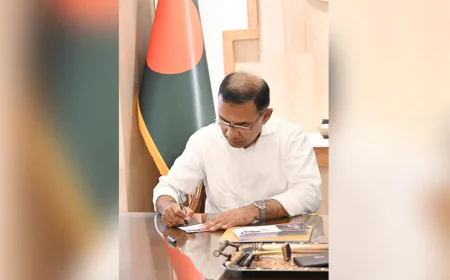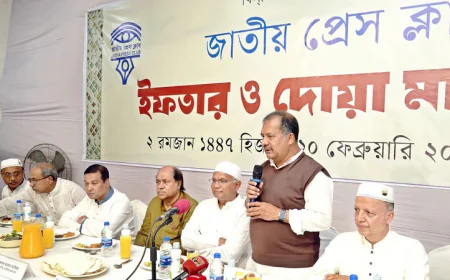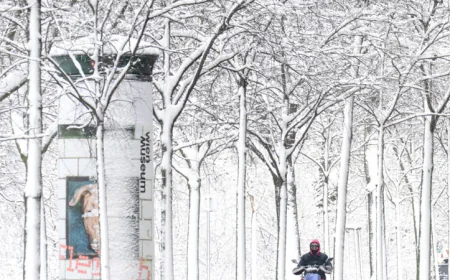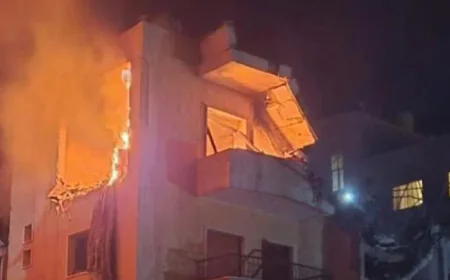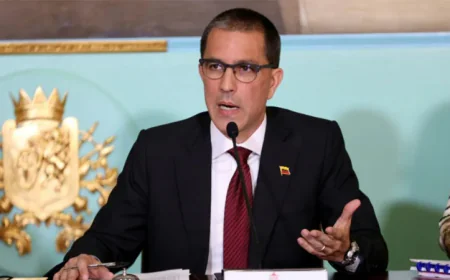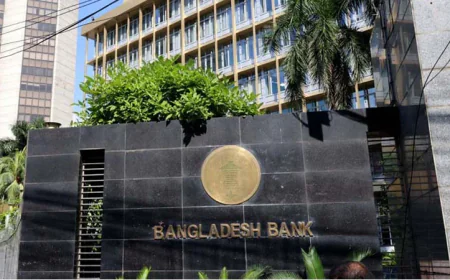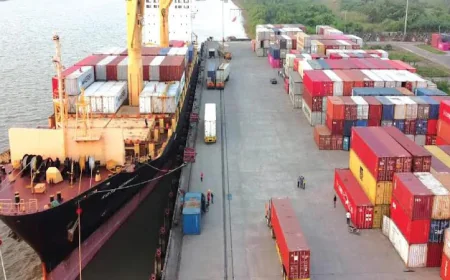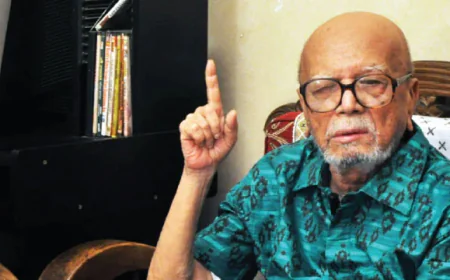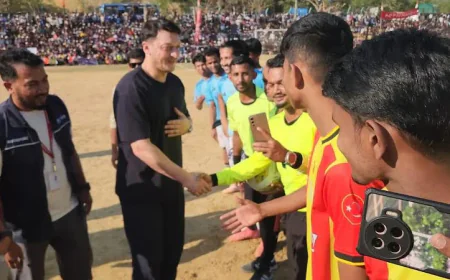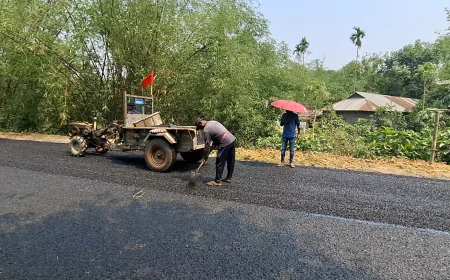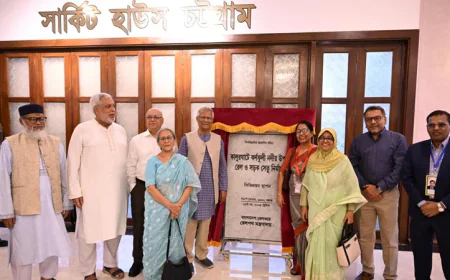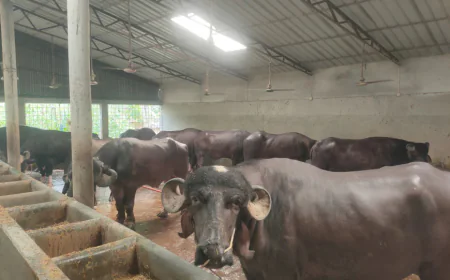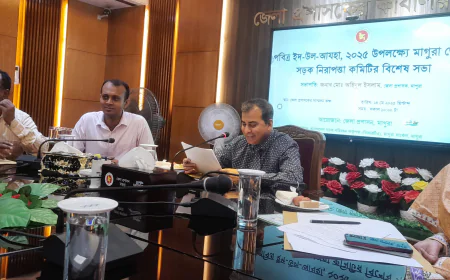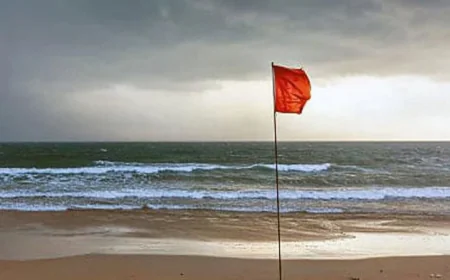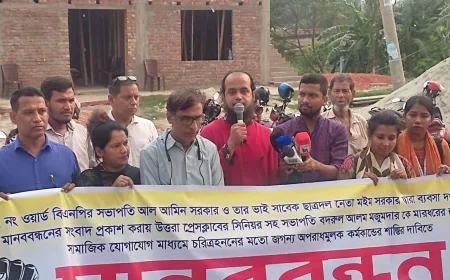Blacksmiths busy ahead of Eid-ul-Azha in Patnitala
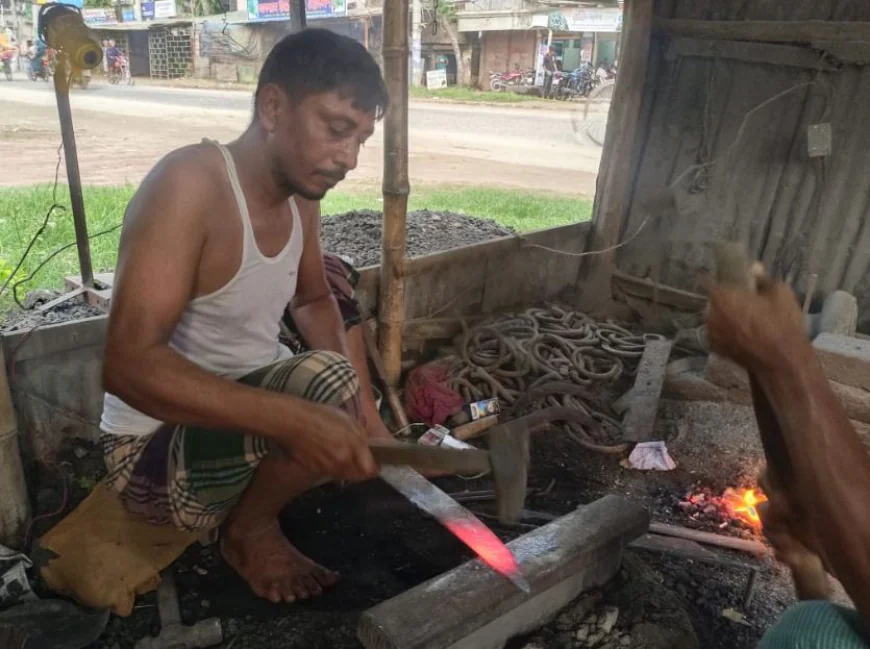
With Eid-ul-Azha just a few days away, the blacksmiths of Patnitala Upazila of the district are busy in making various tools to slaughter sacrificial animals.
On a field visit, it can be seen that these artists are making various tools in the blacksmith shops adjacent to Naogaon Road, Mataji Road, and Dhamair Road in the Upazila Sadar Najipur bus stand area.
Day and night, the blacksmiths are working together to make da, boti, knives, and chapatis. As the day approaches, their busyness increases as if they have no time to catch their breath. While making these weapons, the entire area is filled with the sound of bellows blowing. Along with this, the work of sharpening old tools is going on. In this way, the blacksmiths of Patnitala are spending their days tirelessly.
They work from dawn to late at night. Although there is not much work throughout the year, the blacksmiths are several times busy during Eid-ul-Azha. Meanwhile, people are flocking to the blacksmiths’ shops to buy equipment for slaughtering animals.
Shops where one worker used to work earlier now have 2/3 workers working. However, due to the increase in the cost of goods coming from China, iron, coal and workers’ wages, the blacksmiths are not so happy this Eid. Buyers complain that the prices of tools are being charged more on the occasion of Eid. They are charging from Tk 50 to Tk 100 for sharpening knives. On the other hand, the blacksmiths complain that the prices of their products are a little higher due to the increase in the prices of iron and coal and workers’ wages on the occasion of Eid-ul-Azha. When asked about the prices of these tools, they said that a knife for skinning animals is selling at Tk 300 to Tk 500, a small da at Tk 400 to Tk 650, a large boti at Tk 800 to Tk 1,500, a knife for slaughtering animals at Tk 500 to Tk 1,500, and a chapati at Tk 800 to Tk 2,000.
Delwar Hossain, who came to the blacksmith shop to make chapatis, said, “Eid-ul-Azha is in a week, so I came to the blacksmith shop to make chapatis.”
Md Abul Kalam, a blacksmith from Kanchan Village in Najipur Union of the upazila, said, “I have been involved in this profession for about 20 years. I earn Tk 500 to Tk 700 every day, with which I have great difficulty running my family. The prices of iron and coal are high. Our business has collapsed because of Chinese goods. Many have changed their professions and are making a living by doing other things.”
A Z Mizan, general secretary of the Nazipur Bus Stand Merchants’ Committee and founding president of the Blood Donation Human Welfare Organization, said, “There are about 10 blacksmith shops in the bus stand area. These blacksmiths work hard, but their income is low. On behalf of the merchant committee, we are trying to cooperate as much as we can, but if the government provides them with various assistance or provides interest-free loans, this industry will develop further.”
